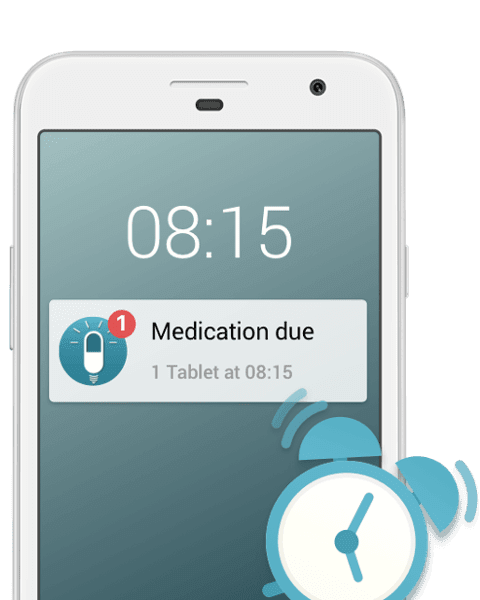We reached out to some of our favorite caregiver bloggers and asked for a short anecdote that reflects on any aspect of caring for a loved one. These stories from Linda Fisher, Frances Kakugawa, and Sally Abrahms are personal, yet may well strike a chord with many people who find themselves in the role of a caregiver.
Linda Fisher: The Driver’s License
Linda Fisher cared for her late husband, Jim, who was diagnosed with early-onset Alzheimer’s before he had reached 50. Linda cared for Jim for a decade and started her blog, Early Onset Alzheimer’s Blog a few years after he passed.
Linda’s latest project, a memoir called Indelible, will add to her portfolio of written work, much of which is shaped by her experiences as a caregiver. Linda was kind enough to share a story from Indelible, relating to a topic many people will be able to relate to.
Jim’s driver’s license renewal notice arrived in the mail, and I was filled with dread. In Missouri, an eye exam was required before a license could be renewed. I knew Jim’s vision was good, but due to aphasia, he could no longer read or write. I was concerned he wouldn’t remember the names of the letters.
His driving had become a point of conflict between us anyway, and I drove when we were together. He still journeyed to Walmart nearly every day in his Nissan pickup. Sometimes, he went several times a day since he only remembered one item at a time. He had become obsessive about picking up aluminum cans alongside the road. He drove the back roads and filled the bed of his pickup with cans. When he gathered a truckload, he would turn them in for cash.
I worried about him driving, but everyone said, “He is still a good driver.”
Well, yes, he could point the car down the road and didn’t have any trouble with the actual steering of the car. On the other hand, sometimes he couldn’t remember if a green light meant stop or go. If he was ever distracted with anything, like changing a cassette or lighting a cigarette, he focused on what he was doing and forgot he was driving a car. I knew he shouldn’t be driving, but he seemed to think he was doing fine and wanted to keep his license and independence in the worst way.
I pulled up to the curb in front of the License Bureau. Jim’s hands trembled as he climbed out of the pickup and his mouth was jerking, so I knew he was nervous. We walked in and after I filled out the paperwork, he stepped up to the machine to take his eye exam.
“Can you read the third line?” the examiner asked him.
He looked into the machine and answered, “Yes.”
She gave me a strange look and prompted him, “Read the letters to me, please.”
He looked again, swallowed nervously, and said, “Jim Fisher.”
“Sir, can you read the letters, please?”
“Jim Fisher,” he replied.
“Please, read the third line,” she repeated patiently, as she gave me a sad look.
“I guess I can’t,” he replied, taking his face from the machine.
“Sir, the only way you can get your license renewed is to have your eyes examined by an optometrist and get a slip from your doctor saying it is all right for you to drive.” I knew our family physician wouldn’t give Jim a note saying he could drive, because we had already discussed the driving situation.
“Can he get a picture id?” I asked.
“Yes, he can, but wait until December to have it done.”
I took Jim’s hand, and we walked out of the license bureau. By the time we reached the car, he was crying. I climbed behind the wheel, reached over and patted his back. “Well, honey, you don’t really need a license anymore. You have me to be your personal chauffeur, and I’ll take you anywhere you want to go. You won’t have to worry about driving or getting lost.”
From that moment on, Jim told everyone he didn’t have a driver’s license because he failed the eye exam.
Other posts you may be interested in on the MyTherapy blog:
- “Is Alzheimer’s Hereditary?” – The Role of Genetics in Alzheimer’s Disease
- 10 of the Best Parkinson’s Blogs to Follow in 2019
Frances Kakugawa: A Golden Moment
Frances Kakugawa is an author and poet, whose work has been heavily influenced by her experiences in caring for her mother, Matsue, who lives with Alzheimer’s. Frances recalls a story she first shared on her blog in 2013, which demonstrates how small moments can help those living with dementia retain their dignity.
A split-second decision.
Have you ever made a split-second decision and later felt sooo good about it?
Last night I was sitting at a table, signing my newest book, when an elderly woman brought her copy to me:
She: Will you sign my book?
Me: I’ll be honored to.
She smiled at me, standing there, her eyes looking straight into mine.
About fifteen minutes later she brought her book back to me:
She: Will you sign my book for me?
Me: I’ll be happy to.
I took her book with my signature and message already inked in. I lifted the cover of the book so she couldn’t see me write and I moved my pen, pretending to write in her book. I returned her copy to her and she was so pleased.
She stood there, smiling, her eyes looking into mine. I asked her to tell me how she spent her leisure time and she described all her fruit trees.
I remember seeing that look so many times in my classrooms. Students connecting looks with me, unable to disguise the genuine pleasure they were feeling over a discovery they may have made about themselves, their teacher, or about learning.
That woman was the highlight of my evening because without knowing, she had tested me on how to honor one another and I passed the test. During that split second, I didn’t say, “But I’ve already signed your book.”
Sometimes we do something extraordinary with the simplest of acts, don’t we, by simply remembering to dignify another human being
Sally Abrahms: A Memento
Sally Abrahms cared for her mother, who suffered two strokes, and has written extensively about caregiving over the years on her blog and around the web. Her anecdote shows how items such as books, and the words within them, can provide special moments in the most difficult times.
When I was a child, my mother, a former English college teacher, would snuggle with me in bed and read Robert Louis Stevenson poetry. I cherished that time and kept the book.
When my daughter Julia was little, I read her Robert Louis Stevenson – in fact, the same book. My mother also read those wonderful poems to my daughter, her granddaughter.
After my mother’s second stroke, at the age of 91, she cruelly lost her ability to read. So, I would take that book and read her the poems, which we would recite together. It gave her great delight.
At my mother’s funeral, Julia talked about how special it was to read with her grandmother and mentioned the book. And then she read “The Swing” as a tribute to my mother.
My daughter now has a newborn boy. She had some of the illustrations that went with her favorite Robert Louis Stevenson poems blown up. They are now hanging in the baby’s room. And that book? It is there, too, waiting to be read.
We would like to thank Linda, Frances, and Sally for contributing to this article. If you would like to share your story on the MyTherapy blog, you can find Dan’s email address in the author bio below.
Take a look at some of the other posts on the MyTherapy blog:




